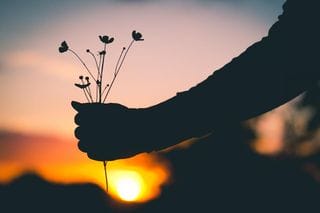
May 5, 2016 | Focolare Worldwide

Source: stocksnap.io
A.M.N.
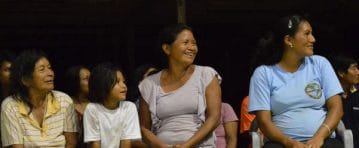
May 4, 2016 | Focolare Worldwide
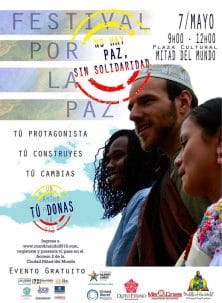 When Ecuador was chosen as the central seat of the 2016 United World Week (SMU), nobody would have imagined that on 16 April, the South American country would suffer one of the decade’s most deadly earthquakes: 660 victims, 4,600 injured, and 22,000 evacuees. «Those were really terrible moments – recalls Herminia, a member of the Ecuador United World Movement. As of now thousands of families are homeless, but the solidarity of the entire world has been really touching and made us feel that we were not alone!” In this context of humanitarian emergency, the actions of the United World undertook a new direction: “We decided to forego the Peace Festival (set for Saturday, 7 May), but decided together to continue being a source of light, and an answer to those who are suffering. Many feel the frustration of being unable to do anything, so we will give them the chance to help,” wrote the youth of the Focolare who decided to double their efforts: “They had chosen to highlight fraternity, and this is what our people are testifying to. We would like to do our best to make this our lifestyle not only during emergencies, but for always.” The Peace Festival of 7 May in Quito is entitled “solidarity is a path to peace”: a sharing of artistic experiences, and also a gathering of funds for the reconstruction. «We want to transmit to our people the message that we have only one life and must live it well.» On the Ecuador Youth for a United World’s Facebook page (fb.com/JMUEcuador) you can post a video greeting that testifies fraternity, and be a symbol of hope. The event is now well underway, with the participation of 300 young people from South America and 60 from other nations: from Italy to Korea, and from Burundi to the Philippines. The experience targeted is not a touristic journey but that of a deepening of “relationships” with oneself, the others, nature, and God, and an occasion to meet from their roots, the many cultures that make up Ecuador today. It is an immersion into the Pre-Columbian history of Quito and the community of the Andes, to prepare the youths present to start the travelling school, with the help of the Kitukara people (children of the upright sun), one of the oldest indigenous communities of Ecuador officially recognised in 2003, to which 9,000 families currently belong. “The core of our tradition is respect for Mother Earth,» Sami explains, along with the strong sense of the community: «when people arrive, they are welcomed as part of our family, because in accepting the others, we accept our own selves.” The two routes of the trip consist in travelling 1,200 km (from 1 to 6 May). Each stopover will unveil an asset, a feature, and a particular gift. From the Sierra along the Coast: in Esmeraldas, with the ancestral community of Chachis, the origin of the music and dance of the Afroesmeraldeño people; in Otavalo with the communities of Agato and Gualapuro, the discovery of the art of giving according to their ancient life philosophy.
When Ecuador was chosen as the central seat of the 2016 United World Week (SMU), nobody would have imagined that on 16 April, the South American country would suffer one of the decade’s most deadly earthquakes: 660 victims, 4,600 injured, and 22,000 evacuees. «Those were really terrible moments – recalls Herminia, a member of the Ecuador United World Movement. As of now thousands of families are homeless, but the solidarity of the entire world has been really touching and made us feel that we were not alone!” In this context of humanitarian emergency, the actions of the United World undertook a new direction: “We decided to forego the Peace Festival (set for Saturday, 7 May), but decided together to continue being a source of light, and an answer to those who are suffering. Many feel the frustration of being unable to do anything, so we will give them the chance to help,” wrote the youth of the Focolare who decided to double their efforts: “They had chosen to highlight fraternity, and this is what our people are testifying to. We would like to do our best to make this our lifestyle not only during emergencies, but for always.” The Peace Festival of 7 May in Quito is entitled “solidarity is a path to peace”: a sharing of artistic experiences, and also a gathering of funds for the reconstruction. «We want to transmit to our people the message that we have only one life and must live it well.» On the Ecuador Youth for a United World’s Facebook page (fb.com/JMUEcuador) you can post a video greeting that testifies fraternity, and be a symbol of hope. The event is now well underway, with the participation of 300 young people from South America and 60 from other nations: from Italy to Korea, and from Burundi to the Philippines. The experience targeted is not a touristic journey but that of a deepening of “relationships” with oneself, the others, nature, and God, and an occasion to meet from their roots, the many cultures that make up Ecuador today. It is an immersion into the Pre-Columbian history of Quito and the community of the Andes, to prepare the youths present to start the travelling school, with the help of the Kitukara people (children of the upright sun), one of the oldest indigenous communities of Ecuador officially recognised in 2003, to which 9,000 families currently belong. “The core of our tradition is respect for Mother Earth,» Sami explains, along with the strong sense of the community: «when people arrive, they are welcomed as part of our family, because in accepting the others, we accept our own selves.” The two routes of the trip consist in travelling 1,200 km (from 1 to 6 May). Each stopover will unveil an asset, a feature, and a particular gift. From the Sierra along the Coast: in Esmeraldas, with the ancestral community of Chachis, the origin of the music and dance of the Afroesmeraldeño people; in Otavalo with the communities of Agato and Gualapuro, the discovery of the art of giving according to their ancient life philosophy.  From the Sierra, to the Orient, up to the Amazons: in Puyo, first stage of this trip, the indigenous Shiwacocha community waited for the youth for hours, and welcomed them with dances, songs and… giving to each one a Kichwa name. This was a highly cultural encounter: from now on the community will celebrate every time the new name is solemnly pronounced. The youth learned the great sense of responsibility towards creation, and attention given to listening to the other. The trip will proceed with Tungurahua, where the youth leaders of the Kisapincha people will illustrate the value of the teamwork of the “MINGAS,” and teach how to communicate with nature. Then at Bolivar at the Salt pans of Guardanda, the youth will testify to the fruit of work and cooperation between different groups, inspired by an economic model of development that is more respectful of nature and the producers. Six days of a genuine exchange of gifts between cultures: the experience will be described during the Peace Festival on 7 May, to bear witness to the wealth of life in harmony between different cultures.
From the Sierra, to the Orient, up to the Amazons: in Puyo, first stage of this trip, the indigenous Shiwacocha community waited for the youth for hours, and welcomed them with dances, songs and… giving to each one a Kichwa name. This was a highly cultural encounter: from now on the community will celebrate every time the new name is solemnly pronounced. The youth learned the great sense of responsibility towards creation, and attention given to listening to the other. The trip will proceed with Tungurahua, where the youth leaders of the Kisapincha people will illustrate the value of the teamwork of the “MINGAS,” and teach how to communicate with nature. Then at Bolivar at the Salt pans of Guardanda, the youth will testify to the fruit of work and cooperation between different groups, inspired by an economic model of development that is more respectful of nature and the producers. Six days of a genuine exchange of gifts between cultures: the experience will be described during the Peace Festival on 7 May, to bear witness to the wealth of life in harmony between different cultures.
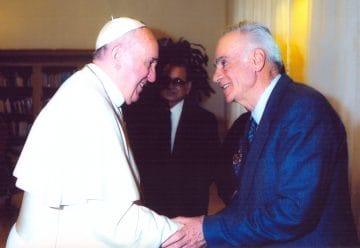
May 3, 2016 | Focolare Worldwide
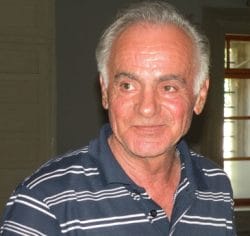 “A man of great moral stature and exceptional culture: it was a pleasure to have known him!” Countless comments like this have been arriving from around the world ever since his death, from people expressing gratitude and testifying that every encounter with Azir was a “moment of God”. A native of Kosovo, a teacher, husband and father of three children, Azir Selmani (May 9, 1947 – April 17, 2016) was the first Muslim to embrace the Focolare Movement in Skopje, Macedonia where he had gone to live because of political reasons. Azir himself recounts: “In 1990 I had a class full of Muslims, only one student was Catholic and I felt like I had to protect him. To show their gratitude his parents invited me to be their guests the Mariapolis in Slovenia. Among those people I began to ask, who are these people? I tried to open my heart a little more, and love slowly changed me. On the last day [of the Mariapolis] I mustered up the courage to stand in front of a hall filled with 300 people and admit that through them I had encountered love, the One God, the All-Powerful! In God’s light I saw all the failures of my past. I was sorry for all those generations of students to whom I had explained that the greatest power in the world was the atomic power; whereas, now I was convinced that the greatest power is love. Little by little a new life began to open before me. I began to read the Koran and to know God. I tried to convey my experience to colleagues and friends, and quite soon there were twenty of us Muslims who wanted to follow the Movement.” Azir opened his home for for Focolare gatherings and was always open to dialogue and sharing his testimony. He would always offer to translate Chiara Lubich’s writings for the Albanians. Touched by the witness of Azir and his wife, Bejije, couples who were having relationship problems would turn to them and Azir and his wife would accompany them along the path of reconciliation with gentleness and wisdom.
“A man of great moral stature and exceptional culture: it was a pleasure to have known him!” Countless comments like this have been arriving from around the world ever since his death, from people expressing gratitude and testifying that every encounter with Azir was a “moment of God”. A native of Kosovo, a teacher, husband and father of three children, Azir Selmani (May 9, 1947 – April 17, 2016) was the first Muslim to embrace the Focolare Movement in Skopje, Macedonia where he had gone to live because of political reasons. Azir himself recounts: “In 1990 I had a class full of Muslims, only one student was Catholic and I felt like I had to protect him. To show their gratitude his parents invited me to be their guests the Mariapolis in Slovenia. Among those people I began to ask, who are these people? I tried to open my heart a little more, and love slowly changed me. On the last day [of the Mariapolis] I mustered up the courage to stand in front of a hall filled with 300 people and admit that through them I had encountered love, the One God, the All-Powerful! In God’s light I saw all the failures of my past. I was sorry for all those generations of students to whom I had explained that the greatest power in the world was the atomic power; whereas, now I was convinced that the greatest power is love. Little by little a new life began to open before me. I began to read the Koran and to know God. I tried to convey my experience to colleagues and friends, and quite soon there were twenty of us Muslims who wanted to follow the Movement.” Azir opened his home for for Focolare gatherings and was always open to dialogue and sharing his testimony. He would always offer to translate Chiara Lubich’s writings for the Albanians. Touched by the witness of Azir and his wife, Bejije, couples who were having relationship problems would turn to them and Azir and his wife would accompany them along the path of reconciliation with gentleness and wisdom.  Azir and Behije took part in several Focolare interreligious gatherings both locally in their own country and also at the international level. Through these meetings Azir formed relationships of unity and friendship with people from around the world. He met Chiara personally in Rome, and shared his deepest sentiments with her. His letters always began with the words: “Dearest Mamma, freely and joyfully I write to you . . . I can never thank you enough. . . In one of those letters he confides to her: “during last Ramadan I did a close reading of the Koran and the Gospel. I’m more and more convinced that Islam and Christianity hide a common treasure that still needs to be discovered through our goodwill and our love.” In 2007 he responded immediately to the invitation from Chiara to make a pact of mutual love with her and with all the Muslims of the Movement, “so that we can be able to experience,” as Lubich wished they would, “God present amongst us. It is God who will bring us along the path of unity.” Seeing the effects of the courageous and enriching communion that is practiced in the Movement, Azir testifies: “I can say that Chiara’s dream is becoming a reality.” He never contented himself with mediocrity and diversity never frightened him. On the contrary, he always wanted to face it, convinced that he would find seeds of the Truth everywhere. At one 2014 symposium in Rome, Azir managed to greet Pope Francis personally: “My dream in life just came true!” he happily remarked. For the last six months of his life Azir battled the illness and never wavered in living for unity. And living up to his exquisite sensitivity to others, he never once refused a visitor and every visit turned out to be a most sacred moment. He was a true seeker of Freedom, the Essential, the Eternal, the Truth, and his words on these universal values will remain forever in the hearts of his listeners. This “master of dialogue”, of deep insight and broad horizons, with the soul of a poet has left us many letters, writings, poems about mercy, Mary of Nazareth in Islam and about Islam’s contact points with Christianity.
Azir and Behije took part in several Focolare interreligious gatherings both locally in their own country and also at the international level. Through these meetings Azir formed relationships of unity and friendship with people from around the world. He met Chiara personally in Rome, and shared his deepest sentiments with her. His letters always began with the words: “Dearest Mamma, freely and joyfully I write to you . . . I can never thank you enough. . . In one of those letters he confides to her: “during last Ramadan I did a close reading of the Koran and the Gospel. I’m more and more convinced that Islam and Christianity hide a common treasure that still needs to be discovered through our goodwill and our love.” In 2007 he responded immediately to the invitation from Chiara to make a pact of mutual love with her and with all the Muslims of the Movement, “so that we can be able to experience,” as Lubich wished they would, “God present amongst us. It is God who will bring us along the path of unity.” Seeing the effects of the courageous and enriching communion that is practiced in the Movement, Azir testifies: “I can say that Chiara’s dream is becoming a reality.” He never contented himself with mediocrity and diversity never frightened him. On the contrary, he always wanted to face it, convinced that he would find seeds of the Truth everywhere. At one 2014 symposium in Rome, Azir managed to greet Pope Francis personally: “My dream in life just came true!” he happily remarked. For the last six months of his life Azir battled the illness and never wavered in living for unity. And living up to his exquisite sensitivity to others, he never once refused a visitor and every visit turned out to be a most sacred moment. He was a true seeker of Freedom, the Essential, the Eternal, the Truth, and his words on these universal values will remain forever in the hearts of his listeners. This “master of dialogue”, of deep insight and broad horizons, with the soul of a poet has left us many letters, writings, poems about mercy, Mary of Nazareth in Islam and about Islam’s contact points with Christianity.

Apr 30, 2016 | Focolare Worldwide
 EdU (Education in Unity), an international and interdisciplinary pedagogic and educational study group got together in Spain (Luminosa Mariapolis Centre) for a seminar on inclusion, the central theme. The Educators from Brazil, Croatia, Italy, Kenya, Burundi, Slovenia, Korea, Poland, Portugal, and certainly Spain, worked on three great threads: relationships, communities, arts and sports. Thanks to live streaming on the network, the Seminar was followed by people in many parts of the world, like Benin, with talks from Argentina, Mexico and the USA. The interesting and stimulating discourses gave a framework to the experiences in really varied fields: the “love dice” put into practice in Burundi, the relationships established in the Raggio di Sole School (Croatia), and the Sevilla Autism Association (Spain)… or the effects of education in the community, and the education community. In Argentina, for example, we have the school for the aborigine community. The outcome: it is the school that revives the traditions of these century-old cultures that risk oblivion, through laboratories for goldsmiths, and the manufacture of canvases and musical instruments.
EdU (Education in Unity), an international and interdisciplinary pedagogic and educational study group got together in Spain (Luminosa Mariapolis Centre) for a seminar on inclusion, the central theme. The Educators from Brazil, Croatia, Italy, Kenya, Burundi, Slovenia, Korea, Poland, Portugal, and certainly Spain, worked on three great threads: relationships, communities, arts and sports. Thanks to live streaming on the network, the Seminar was followed by people in many parts of the world, like Benin, with talks from Argentina, Mexico and the USA. The interesting and stimulating discourses gave a framework to the experiences in really varied fields: the “love dice” put into practice in Burundi, the relationships established in the Raggio di Sole School (Croatia), and the Sevilla Autism Association (Spain)… or the effects of education in the community, and the education community. In Argentina, for example, we have the school for the aborigine community. The outcome: it is the school that revives the traditions of these century-old cultures that risk oblivion, through laboratories for goldsmiths, and the manufacture of canvases and musical instruments.  The variety of experiences presented was one of the strengths of a seminar conceived as a workshop: “here I see many people working together for the same objectives,” said one of the participants who no longer felt alone in her battles. In fact, a broader network was created, which knit the participants closer, in the certainty that “the real job has just begun.” It was also an occasion to get to know more about other international projects like Living Peace, Scholas Occurrentes and Sportmeet. As a contribution from the world of the art of education, the photographer and educator, Concha Casajús, exhibited some of her works in a video denouncing the sexual abuses perpetrated in Congo. At the end, the participants left with a greater conviction that inclusion is a lifestyle, a necessity in this complex and varied world of today, and particularly, that inclusive education is a priority in all sectors. The Seminar was preceded by a Symposium held in the Complutense University of Madrid on 22 April. Also dedicated to inclusion education, the opening speech was given by the Rector of the National University of Distance Education, Alejandro Tiana. Kishore Singh, Special Rapporteur of the United Nations on the Right to Education, contributed with a message of support to the event. The next EdU event is set for 3 and 4 June in Poland, during the International Interdisciplinary Conference on the occasion of the 20th anniversary of the h.c. “Jonh Paul II doctorate in Social Sciences” awarded to Chiara Lubich by the University of Lublin.
The variety of experiences presented was one of the strengths of a seminar conceived as a workshop: “here I see many people working together for the same objectives,” said one of the participants who no longer felt alone in her battles. In fact, a broader network was created, which knit the participants closer, in the certainty that “the real job has just begun.” It was also an occasion to get to know more about other international projects like Living Peace, Scholas Occurrentes and Sportmeet. As a contribution from the world of the art of education, the photographer and educator, Concha Casajús, exhibited some of her works in a video denouncing the sexual abuses perpetrated in Congo. At the end, the participants left with a greater conviction that inclusion is a lifestyle, a necessity in this complex and varied world of today, and particularly, that inclusive education is a priority in all sectors. The Seminar was preceded by a Symposium held in the Complutense University of Madrid on 22 April. Also dedicated to inclusion education, the opening speech was given by the Rector of the National University of Distance Education, Alejandro Tiana. Kishore Singh, Special Rapporteur of the United Nations on the Right to Education, contributed with a message of support to the event. The next EdU event is set for 3 and 4 June in Poland, during the International Interdisciplinary Conference on the occasion of the 20th anniversary of the h.c. “Jonh Paul II doctorate in Social Sciences” awarded to Chiara Lubich by the University of Lublin.
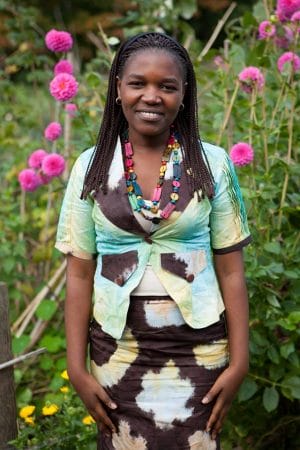
Apr 29, 2016 | Focolare Worldwide

Micheline Mwendike
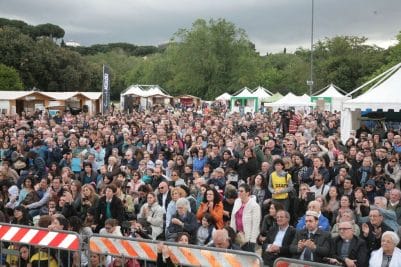
Apr 27, 2016 | Focolare Worldwide
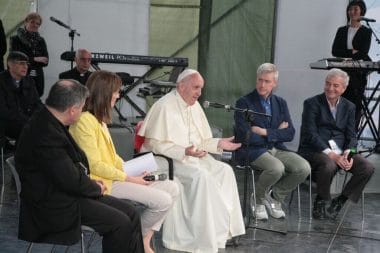
Photo: Lorenzo Russo

Photo: Lorenzo Russo





 When Ecuador was chosen as the central seat of the 2016 United World Week (SMU), nobody would have imagined that on 16 April, the South American country would suffer one of the decade’s most deadly earthquakes: 660 victims, 4,600 injured, and 22,000 evacuees. «Those were really terrible moments – recalls Herminia, a member of the Ecuador United World Movement. As of now thousands of families are homeless, but the solidarity of the entire world has been really touching and made us feel that we were not alone!” In this context of humanitarian emergency, the actions of the United World undertook a new direction: “We decided to forego the Peace Festival (set for Saturday, 7 May), but decided together to continue being a source of light, and an answer to those who are suffering. Many feel the frustration of being unable to do anything, so we will give them the chance to help,” wrote the youth of the Focolare who decided to double their efforts: “They had chosen to highlight fraternity, and this is what our people are testifying to. We would like to do our best to make this our lifestyle not only during emergencies, but for always.” The Peace Festival of 7 May in Quito is entitled “solidarity is a path to peace”: a sharing of artistic experiences, and also a gathering of funds for the reconstruction. «We want to transmit to our people the message that we have only one life and must live it well.» On the Ecuador Youth for a United World’s Facebook page (fb.com/JMUEcuador) you can post a video greeting that testifies fraternity, and be a symbol of hope. The event is now well underway, with the participation of 300 young people from South America and 60 from other nations: from Italy to Korea, and from Burundi to the Philippines. The experience targeted is not a touristic journey but that of a deepening of “relationships” with oneself, the others, nature, and God, and an occasion to meet from their roots, the many cultures that make up Ecuador today. It is an immersion into the Pre-Columbian history of Quito and the community of the Andes, to prepare the youths present to start the travelling school, with the help of the Kitukara people (children of the upright sun), one of the oldest indigenous communities of Ecuador officially recognised in 2003, to which 9,000 families currently belong. “The core of our tradition is respect for Mother Earth,» Sami explains, along with the strong sense of the community: «when people arrive, they are welcomed as part of our family, because in accepting the others, we accept our own selves.” The two routes of the trip consist in travelling 1,200 km (from 1 to 6 May). Each stopover will unveil an asset, a feature, and a particular gift. From the Sierra along the Coast: in Esmeraldas, with the ancestral community of Chachis, the origin of the music and dance of the Afroesmeraldeño people; in Otavalo with the communities of Agato and Gualapuro, the discovery of the art of giving according to their ancient life philosophy.
When Ecuador was chosen as the central seat of the 2016 United World Week (SMU), nobody would have imagined that on 16 April, the South American country would suffer one of the decade’s most deadly earthquakes: 660 victims, 4,600 injured, and 22,000 evacuees. «Those were really terrible moments – recalls Herminia, a member of the Ecuador United World Movement. As of now thousands of families are homeless, but the solidarity of the entire world has been really touching and made us feel that we were not alone!” In this context of humanitarian emergency, the actions of the United World undertook a new direction: “We decided to forego the Peace Festival (set for Saturday, 7 May), but decided together to continue being a source of light, and an answer to those who are suffering. Many feel the frustration of being unable to do anything, so we will give them the chance to help,” wrote the youth of the Focolare who decided to double their efforts: “They had chosen to highlight fraternity, and this is what our people are testifying to. We would like to do our best to make this our lifestyle not only during emergencies, but for always.” The Peace Festival of 7 May in Quito is entitled “solidarity is a path to peace”: a sharing of artistic experiences, and also a gathering of funds for the reconstruction. «We want to transmit to our people the message that we have only one life and must live it well.» On the Ecuador Youth for a United World’s Facebook page (fb.com/JMUEcuador) you can post a video greeting that testifies fraternity, and be a symbol of hope. The event is now well underway, with the participation of 300 young people from South America and 60 from other nations: from Italy to Korea, and from Burundi to the Philippines. The experience targeted is not a touristic journey but that of a deepening of “relationships” with oneself, the others, nature, and God, and an occasion to meet from their roots, the many cultures that make up Ecuador today. It is an immersion into the Pre-Columbian history of Quito and the community of the Andes, to prepare the youths present to start the travelling school, with the help of the Kitukara people (children of the upright sun), one of the oldest indigenous communities of Ecuador officially recognised in 2003, to which 9,000 families currently belong. “The core of our tradition is respect for Mother Earth,» Sami explains, along with the strong sense of the community: «when people arrive, they are welcomed as part of our family, because in accepting the others, we accept our own selves.” The two routes of the trip consist in travelling 1,200 km (from 1 to 6 May). Each stopover will unveil an asset, a feature, and a particular gift. From the Sierra along the Coast: in Esmeraldas, with the ancestral community of Chachis, the origin of the music and dance of the Afroesmeraldeño people; in Otavalo with the communities of Agato and Gualapuro, the discovery of the art of giving according to their ancient life philosophy.  From the Sierra, to the Orient, up to the Amazons: in Puyo, first stage of this trip, the indigenous Shiwacocha community waited for the youth for hours, and welcomed them with dances, songs and… giving to each one a Kichwa name. This was a highly cultural encounter: from now on the community will celebrate every time the new name is solemnly pronounced. The youth learned the great sense of responsibility towards creation, and attention given to listening to the other. The trip will proceed with Tungurahua, where the youth leaders of the Kisapincha people will illustrate the value of the teamwork of the “MINGAS,” and teach how to communicate with nature. Then at Bolivar at the Salt pans of Guardanda, the youth will testify to the fruit of work and cooperation between different groups, inspired by an economic model of development that is more respectful of nature and the producers. Six days of a genuine exchange of gifts between cultures: the experience will be described during the Peace Festival on 7 May, to bear witness to the wealth of life in harmony between different cultures.
From the Sierra, to the Orient, up to the Amazons: in Puyo, first stage of this trip, the indigenous Shiwacocha community waited for the youth for hours, and welcomed them with dances, songs and… giving to each one a Kichwa name. This was a highly cultural encounter: from now on the community will celebrate every time the new name is solemnly pronounced. The youth learned the great sense of responsibility towards creation, and attention given to listening to the other. The trip will proceed with Tungurahua, where the youth leaders of the Kisapincha people will illustrate the value of the teamwork of the “MINGAS,” and teach how to communicate with nature. Then at Bolivar at the Salt pans of Guardanda, the youth will testify to the fruit of work and cooperation between different groups, inspired by an economic model of development that is more respectful of nature and the producers. Six days of a genuine exchange of gifts between cultures: the experience will be described during the Peace Festival on 7 May, to bear witness to the wealth of life in harmony between different cultures.
 “A man of great moral stature and exceptional culture: it was a pleasure to have known him!” Countless comments like this have been arriving from around the world ever since his death, from people expressing gratitude and testifying that every encounter with Azir was a “moment of God”. A native of Kosovo, a teacher, husband and father of three children, Azir Selmani (May 9, 1947 – April 17, 2016) was the first Muslim to embrace the Focolare Movement in Skopje, Macedonia where he had gone to live because of political reasons. Azir himself recounts: “In 1990 I had a class full of Muslims, only one student was Catholic and I felt like I had to protect him. To show their gratitude his parents invited me to be their guests the Mariapolis in Slovenia. Among those people I began to ask, who are these people? I tried to open my heart a little more, and love slowly changed me. On the last day [of the Mariapolis] I mustered up the courage to stand in front of a hall filled with 300 people and admit that through them I had encountered love, the One God, the All-Powerful! In God’s light I saw all the failures of my past. I was sorry for all those generations of students to whom I had explained that the greatest power in the world was the atomic power; whereas, now I was convinced that the greatest power is love. Little by little a new life began to open before me. I began to read the Koran and to know God. I tried to convey my experience to colleagues and friends, and quite soon there were twenty of us Muslims who wanted to follow the Movement.” Azir opened his home for for Focolare gatherings and was always open to dialogue and sharing his testimony. He would always offer to translate Chiara Lubich’s writings for the Albanians. Touched by the witness of Azir and his wife, Bejije, couples who were having relationship problems would turn to them and Azir and his wife would accompany them along the path of reconciliation with gentleness and wisdom.
“A man of great moral stature and exceptional culture: it was a pleasure to have known him!” Countless comments like this have been arriving from around the world ever since his death, from people expressing gratitude and testifying that every encounter with Azir was a “moment of God”. A native of Kosovo, a teacher, husband and father of three children, Azir Selmani (May 9, 1947 – April 17, 2016) was the first Muslim to embrace the Focolare Movement in Skopje, Macedonia where he had gone to live because of political reasons. Azir himself recounts: “In 1990 I had a class full of Muslims, only one student was Catholic and I felt like I had to protect him. To show their gratitude his parents invited me to be their guests the Mariapolis in Slovenia. Among those people I began to ask, who are these people? I tried to open my heart a little more, and love slowly changed me. On the last day [of the Mariapolis] I mustered up the courage to stand in front of a hall filled with 300 people and admit that through them I had encountered love, the One God, the All-Powerful! In God’s light I saw all the failures of my past. I was sorry for all those generations of students to whom I had explained that the greatest power in the world was the atomic power; whereas, now I was convinced that the greatest power is love. Little by little a new life began to open before me. I began to read the Koran and to know God. I tried to convey my experience to colleagues and friends, and quite soon there were twenty of us Muslims who wanted to follow the Movement.” Azir opened his home for for Focolare gatherings and was always open to dialogue and sharing his testimony. He would always offer to translate Chiara Lubich’s writings for the Albanians. Touched by the witness of Azir and his wife, Bejije, couples who were having relationship problems would turn to them and Azir and his wife would accompany them along the path of reconciliation with gentleness and wisdom.  Azir and Behije took part in several Focolare interreligious gatherings both locally in their own country and also at the international level. Through these meetings Azir formed relationships of unity and friendship with people from around the world. He met Chiara personally in Rome, and shared his deepest sentiments with her. His letters always began with the words: “Dearest Mamma, freely and joyfully I write to you . . . I can never thank you enough. . . In one of those letters he confides to her: “during last Ramadan I did a close reading of the Koran and the Gospel. I’m more and more convinced that Islam and Christianity hide a common treasure that still needs to be discovered through our goodwill and our love.” In 2007 he responded immediately to the invitation from Chiara to make a pact of mutual love with her and with all the Muslims of the Movement, “so that we can be able to experience,” as Lubich wished they would, “God present amongst us. It is God who will bring us along the path of unity.” Seeing the effects of the courageous and enriching communion that is practiced in the Movement, Azir testifies: “I can say that Chiara’s dream is becoming a reality.” He never contented himself with mediocrity and diversity never frightened him. On the contrary, he always wanted to face it, convinced that he would find seeds of the Truth everywhere. At one 2014 symposium in Rome, Azir managed to greet Pope Francis personally: “My dream in life just came true!” he happily remarked. For the last six months of his life Azir battled the illness and never wavered in living for unity. And living up to his exquisite sensitivity to others, he never once refused a visitor and every visit turned out to be a most sacred moment. He was a true seeker of Freedom, the Essential, the Eternal, the Truth, and his words on these universal values will remain forever in the hearts of his listeners. This “master of dialogue”, of deep insight and broad horizons, with the soul of a poet has left us many letters, writings, poems about mercy, Mary of Nazareth in Islam and about Islam’s contact points with Christianity.
Azir and Behije took part in several Focolare interreligious gatherings both locally in their own country and also at the international level. Through these meetings Azir formed relationships of unity and friendship with people from around the world. He met Chiara personally in Rome, and shared his deepest sentiments with her. His letters always began with the words: “Dearest Mamma, freely and joyfully I write to you . . . I can never thank you enough. . . In one of those letters he confides to her: “during last Ramadan I did a close reading of the Koran and the Gospel. I’m more and more convinced that Islam and Christianity hide a common treasure that still needs to be discovered through our goodwill and our love.” In 2007 he responded immediately to the invitation from Chiara to make a pact of mutual love with her and with all the Muslims of the Movement, “so that we can be able to experience,” as Lubich wished they would, “God present amongst us. It is God who will bring us along the path of unity.” Seeing the effects of the courageous and enriching communion that is practiced in the Movement, Azir testifies: “I can say that Chiara’s dream is becoming a reality.” He never contented himself with mediocrity and diversity never frightened him. On the contrary, he always wanted to face it, convinced that he would find seeds of the Truth everywhere. At one 2014 symposium in Rome, Azir managed to greet Pope Francis personally: “My dream in life just came true!” he happily remarked. For the last six months of his life Azir battled the illness and never wavered in living for unity. And living up to his exquisite sensitivity to others, he never once refused a visitor and every visit turned out to be a most sacred moment. He was a true seeker of Freedom, the Essential, the Eternal, the Truth, and his words on these universal values will remain forever in the hearts of his listeners. This “master of dialogue”, of deep insight and broad horizons, with the soul of a poet has left us many letters, writings, poems about mercy, Mary of Nazareth in Islam and about Islam’s contact points with Christianity. 
 EdU (Education in Unity), an international and interdisciplinary pedagogic and educational study group got together in Spain (Luminosa Mariapolis Centre) for a seminar on inclusion, the central theme. The Educators from Brazil, Croatia, Italy, Kenya, Burundi, Slovenia, Korea, Poland, Portugal, and certainly Spain, worked on three great threads: relationships, communities, arts and sports. Thanks to live streaming on the network, the Seminar was followed by people in many parts of the world, like Benin, with talks from Argentina, Mexico and the USA. The interesting and stimulating discourses gave a framework to the experiences in really varied fields: the “love dice” put into practice in Burundi, the relationships established in the Raggio di Sole School (Croatia), and the Sevilla Autism Association (Spain)… or the effects of education in the community, and the education community. In Argentina, for example, we have the school for the aborigine community. The outcome: it is the school that revives the traditions of these century-old cultures that risk oblivion, through laboratories for goldsmiths, and the manufacture of canvases and musical instruments.
EdU (Education in Unity), an international and interdisciplinary pedagogic and educational study group got together in Spain (Luminosa Mariapolis Centre) for a seminar on inclusion, the central theme. The Educators from Brazil, Croatia, Italy, Kenya, Burundi, Slovenia, Korea, Poland, Portugal, and certainly Spain, worked on three great threads: relationships, communities, arts and sports. Thanks to live streaming on the network, the Seminar was followed by people in many parts of the world, like Benin, with talks from Argentina, Mexico and the USA. The interesting and stimulating discourses gave a framework to the experiences in really varied fields: the “love dice” put into practice in Burundi, the relationships established in the Raggio di Sole School (Croatia), and the Sevilla Autism Association (Spain)… or the effects of education in the community, and the education community. In Argentina, for example, we have the school for the aborigine community. The outcome: it is the school that revives the traditions of these century-old cultures that risk oblivion, through laboratories for goldsmiths, and the manufacture of canvases and musical instruments.  The variety of experiences presented was one of the strengths of a seminar conceived as a workshop: “here I see many people working together for the same objectives,” said one of the participants who no longer felt alone in her battles. In fact, a broader network was created, which knit the participants closer, in the certainty that “the real job has just begun.” It was also an occasion to get to know more about other international projects like Living Peace, Scholas Occurrentes and Sportmeet. As a contribution from the world of the art of education, the photographer and educator, Concha Casajús, exhibited some of her works in a video denouncing the sexual abuses perpetrated in Congo. At the end, the participants left with a greater conviction that inclusion is a lifestyle, a necessity in this complex and varied world of today, and particularly, that inclusive education is a priority in all sectors. The Seminar was preceded by a Symposium held in the Complutense University of Madrid on 22 April. Also dedicated to inclusion education, the opening speech was given by the Rector of the National University of Distance Education, Alejandro Tiana. Kishore Singh, Special Rapporteur of the United Nations on the Right to Education, contributed with a message of support to the event. The next EdU event is set for 3 and 4 June in Poland, during the International Interdisciplinary Conference on the occasion of the 20th anniversary of the h.c. “Jonh Paul II doctorate in Social Sciences” awarded to Chiara Lubich by the University of Lublin.
The variety of experiences presented was one of the strengths of a seminar conceived as a workshop: “here I see many people working together for the same objectives,” said one of the participants who no longer felt alone in her battles. In fact, a broader network was created, which knit the participants closer, in the certainty that “the real job has just begun.” It was also an occasion to get to know more about other international projects like Living Peace, Scholas Occurrentes and Sportmeet. As a contribution from the world of the art of education, the photographer and educator, Concha Casajús, exhibited some of her works in a video denouncing the sexual abuses perpetrated in Congo. At the end, the participants left with a greater conviction that inclusion is a lifestyle, a necessity in this complex and varied world of today, and particularly, that inclusive education is a priority in all sectors. The Seminar was preceded by a Symposium held in the Complutense University of Madrid on 22 April. Also dedicated to inclusion education, the opening speech was given by the Rector of the National University of Distance Education, Alejandro Tiana. Kishore Singh, Special Rapporteur of the United Nations on the Right to Education, contributed with a message of support to the event. The next EdU event is set for 3 and 4 June in Poland, during the International Interdisciplinary Conference on the occasion of the 20th anniversary of the h.c. “Jonh Paul II doctorate in Social Sciences” awarded to Chiara Lubich by the University of Lublin.

